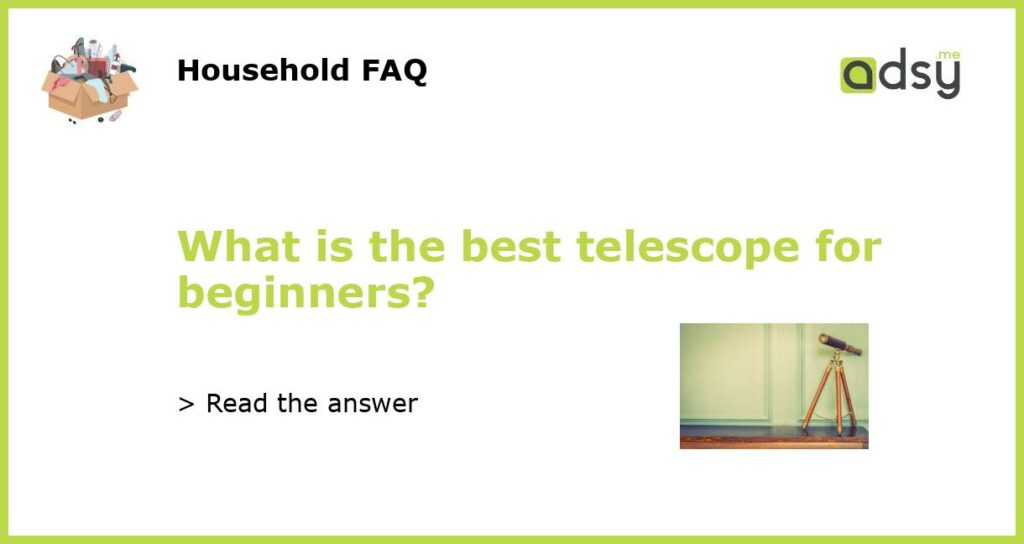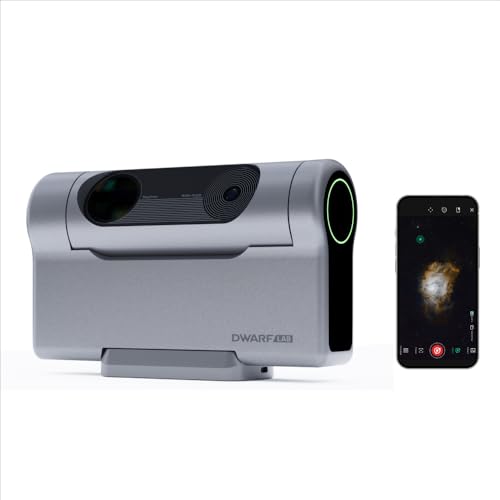Understanding the needs of beginners
When it comes to choosing the best telescope for beginners, it is important to consider the specific needs and requirements of someone who is new to astronomy. Beginners often have different priorities compared to more experienced astronomers, such as ease of use, affordability, and portability. By understanding these needs, it becomes easier to identify the best telescope options for beginners.
The importance of aperture
One of the most important factors to consider when choosing a telescope for beginners is the aperture. Aperture refers to the diameter of the telescope’s main lens or mirror, and it determines the amount of light that the telescope can gather. The larger the aperture, the brighter and clearer the images will be.
For beginners, it is generally recommended to choose a telescope with a larger aperture, as it allows for better views of celestial objects such as the Moon, planets, and deep-sky objects like galaxies and nebulae. A telescope with an aperture of at least 70mm (2.8 inches) is ideal for beginners.
Types of telescopes for beginners
There are several types of telescopes that are commonly recommended for beginners:
- Refractor telescopes: These telescopes use lenses to gather and focus light. They are generally easy to use and require minimal maintenance.
- Reflectors: These telescopes use mirrors to gather and focus light. They often offer larger apertures for a more affordable price, but can be more complex to set up and maintain.
- Compound telescopes: These telescopes combine the features of both refractors and reflectors. They offer a good balance between image quality and ease of use, making them a popular choice for beginners.
Each type of telescope has its own advantages and disadvantages, so it’s important to consider the specific needs and preferences of the beginner when choosing the right type of telescope.
Recommended telescopes for beginners
Based on the above considerations, here are some highly recommended telescopes for beginners:
- Celestron NexStar 4SE: This telescope is a great option for beginners who want a compact and portable telescope. It has a 102mm aperture and comes with a computerized mount that makes it easy to find and track celestial objects.
- Orion SkyQuest XT8: This reflector telescope offers an 8-inch aperture, providing excellent views of the night sky. It is relatively affordable and offers great value for money.
- Meade Instruments Infinity 80: This refractor telescope is a popular choice for beginners. It has an 80mm aperture and comes with a stable tripod, making it easy to set up and use.
These telescopes are just a few examples, and there are many other options available for beginners. It is important to read reviews, compare features, and consider personal preferences before making a decision.
Additional considerations for beginners
When choosing a telescope for beginners, there are a few additional factors to consider:
- Budget: Set a budget and look for telescopes that offer the best value for money within that range. There are many affordable options available for beginners.
- Accessories: Consider the accessories that come with the telescope, such as eyepieces, finderscopes, and mounts. These can greatly enhance the observing experience for beginners.
- Portability: Think about how and where the telescope will be used. If it needs to be easily transported, consider a more compact and lightweight option.
By taking these factors into account, beginners can find the best telescope that aligns with their needs, preferences, and budget. With the right telescope, beginners can embark on an exciting journey into the fascinating world of astronomy.






